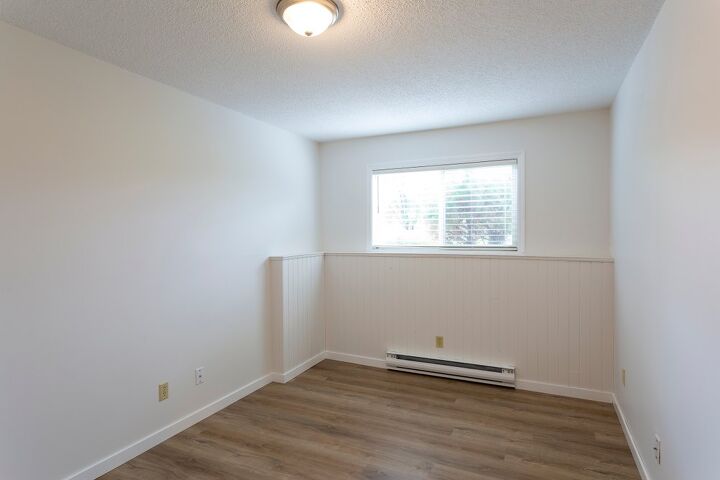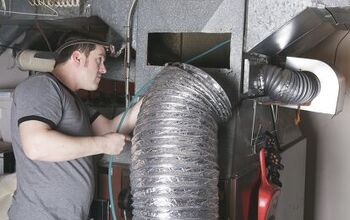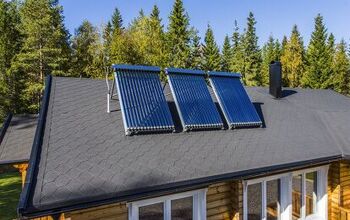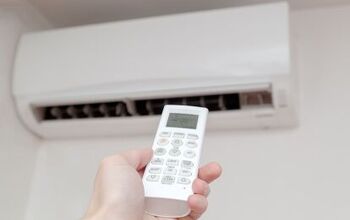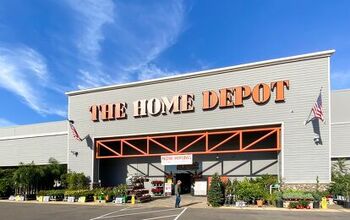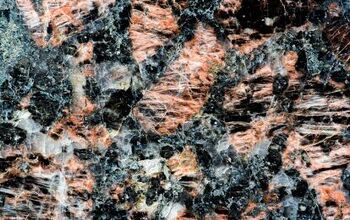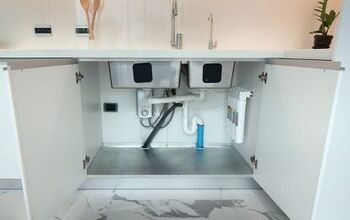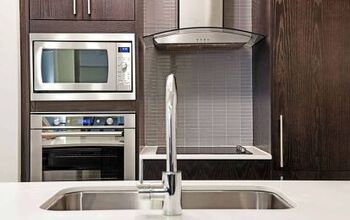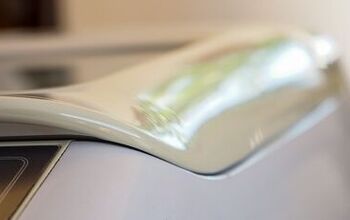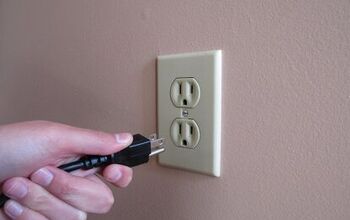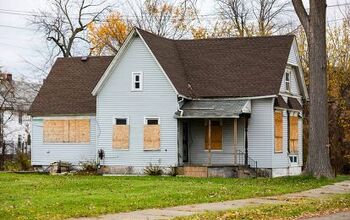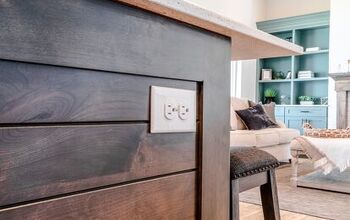Ductless Heat Pump Vs. Electric Baseboard: Which One Is Better?

Are you considering replacing your heating system? Baseboard heaters have long been a popular option for older homes without ducting. For these properties, newer ductless heat pump systems provide superior heating and cooling technology. Which is the most appropriate for your residence?
Electric baseboard heaters are the most common type of unit, while ductless heat pumps systems are a more efficient way of heating your home. Baseboard heaters are quiet, and easier to install, but they’re better as a backup heating source. Ductless units are easier to maintain and more energy-efficient and in turn, cost-effective.
This article will describe the differences between baseboard heating and ductless HVAC units so you can decide what is best for you. We’ll also compare the pros and cons to give you the extra information that you need to make your choice.
Do You Need a Heating and Cooling Contractor?
Get free, zero-commitment quotes from pro contractors near you.

Baseboard Heat vs. Ductless HVAC Units
A ductless HVAC unit, sometimes known as a mini-split system, combines the greatest features of both heating and cooling systems. The ductless system consists of an outdoor compressor that is connected to indoor air handlers throughout the house.
The air handlers are connected to the compressor outside by a copper conduit that goes through the wall, rather than ductwork, which can be expensive and difficult to install.
Electric Baseboard Heaters
Electric baseboard heaters are most common, however some work with boilers in radiant heat floor systems. The heaters are controlled via a thermostat in each room. Baseboard heaters must be installed correctly to function properly. To prevent heat loss between the heater and the wall, each unit must be placed near a window and must fit exactly.
Ductless Heat Pump Systems
While electric baseboard heaters are a stable and cost-effective heating alternative, the DOE recommends heat pump-style systems, such as Mitsubishi ductless systems, as a more efficient way of heating your house.
These systems gather heat from the air outside your home and repurpose it for inside use, allowing them to provide up to three times the amount of heat they consume for operation. Heat pump systems consume 30-50 percent less electricity than baseboard heaters, according to DOE calculations.
Advantages And Disadvantages: Baseboard vs. Ductless
To understand which type of heating unit is best for your home you first have to understand the pros and cons of each. Therefore, below, we will discuss these points so you can better understand the benefits and drawbacks of each and see if they would be a must or bust for your home.
Pros Of Baseboard Heat
Baseboard heaters are still widely available, even if they are not as widespread as other types of home heating. This is especially true in older homes. What are the advantages of electric baseboard heating?
- It runs quietly. A heating unit can be loud enough to disrupt a conversation or make sleeping more difficult if you’re near the furnace when this happens or if the blower isn’t in good repair. Baseboard heaters make no noise at all, except for a few pops and clicks when the heating element warms up.
- Heating zones. Families can set different temperatures in different regions of the house with zone heating. It’s now frequently presented as a digital feature that allows you to specify separate parts of your home to be heated and cooled at certain preset temperatures without being affected by temperatures in other parts of the house.
- Easy to install. Electric baseboard heating is easier — and less expensive — to install than other types of heating since it does not require ducting.
- Excellent backup heat source. Baseboard heaters are an excellent supplementary — or backup — source of heat in locations where winter temperatures are high. Why? Heat pumps were not made to withstand the freezing temperatures of winter.
Cons Of Baseboard Heat
Electric baseboard heaters have several obvious advantages, but they aren’t the most efficient or practical heat source on the market today.
They Can Be Expensive
Electric baseboard heaters, on average, consume more electricity than an electric heat pump. This translates to increased electric costs, especially during the hardest winter months when your furnace is working overtime to keep your home warm.
Baseboard heater placement near windows and outside walls can also work against you. The thermostat on the unit will work even harder to keep the room warm if it detects cold nearby, such as drafts from ancient windows. The temperature closest to the thermostat is what it reacts to. This could result in even higher energy costs.
They Take Up Space
Baseboard heaters, by their very nature, take up valuable wall space in every room. They’re placed under windows and along exterior walls to keep the cold out of these areas of the house. This almost always means you’ll have to situate the couch, bed, or dresser right next to a long baseboard heater.
To avoid a fire, keep furniture and curtains at least 6 inches away from electric baseboard heaters since they grow hot. The units’ positioning, as well as the requirement to keep them free of obstructions, can drastically limit where you can put furniture and what kind of drapes you can securely hang. On windows above a baseboard heater, long drapes are a no-no!
Possible Safety Hazard
When turned on, electric baseboard heaters may grow extremely hot. This can be harmful if you have young children who are prone to sticking their fingers where they don’t belong.
Parents instinctively look for methods to hide or block safety concerns in their homes, but there’s no way to hide or block heaters from a curious child because you can’t put things over or in front of them. As a result, young children in homes with electric baseboard heaters must be constantly monitored to protect their safety.
Produces Very Dry Heat
Electric baseboard heaters are known for their extremely dry heat. Dry skin, dry throats, bloody noses, and dry eyes are common complaints among residents of houses with baseboard heaters, especially if they are already prone to these issues.
They Require Regular Cleaning
When the system is compelled to operate harder or for longer periods, energy costs rise. Baseboard heaters must be cleaned regularly to maintain their optimal efficiency.
Pros Of Ductless HVAC Units?
Since we talked of the pros of baseboard units, it’s important that you understand the benefits to the ductless units as well to be able to properly compare.
- Reduces energy loss. When you install a ductless HVAC system in your house, you can expect to save 30% on annual energy costs. Reduced energy loss equates to monthly energy savings!
- Easy to install. Installation is easier and less obtrusive because this system does not rely on ducts to transport pushed air from room to room. Outside, the compressor is installed, and copper wires are used to connect it to areas inside your home.
- Control the temperature of your home. Ductless HVAC systems offer the energy efficiency of a modern HVAC system while also allowing you to adjust the temperature in each room of your home individually.
- Easy to maintain. Ductless systems do not necessitate the regular maintenance that baseboard heaters necessitate. Dust is collected by a filter in ductless systems, but these filters are easy to remove and wash, making routine cleaning a breeze.
Cons Of A Ductless System
For most homeowners, ductless has three drawbacks: initial expense, ongoing upkeep, and aesthetics. There’s a fourth concern for individuals in extremely cold climates.
If you want ductless heat, you’ll almost certainly need a fuel-based backup, though some newer units can manage the load even when temperatures drop below zero.
They Are Expensive To Buy
Ductless systems are several times more expensive than comparable window or baseboard heating units for a single room solution (thousands of dollars versus hundreds). Furthermore, replacing your old central heating/cooling system with a complete ductless solution could cost two to three times as much as merely replacing it with another ducted unit.
You’ll save money on your energy bills, but the payback period is determined by your climate, how much you use the system, and your local electricity costs.
You Need To Clean Frequently
To keep your system running smoothly, you’ll need to clean the filters in each unit once a month (more often if you smoke or have pets). Don’t skip it: ductless fans can’t take gathering junk, and if you put off maintenance until it’s too late and professional cleaning is required, you’ll end up spending hundreds of dollars and maybe shortening the life of your system.
Do You Need a Heating and Cooling Contractor?
Get free, zero-commitment quotes from pro contractors near you.

Wrapping It Up
Both baseboard and ductless heating have their advantages and disadvantages. It just depends on what your personal preferences are and the way that your home is set up regarding which type of heating unit is best for you.
Take the time to compare and when in doubt, call a professional that can assist you with any questions you have. After all, that’s what they’re there for!

Heather is a passionate writer who loves anything DIY. Growing up, she learned everything from home repairs to design, and wants to share her tips with you. When she's not writing, she's usually hiking or searching for her next DIY project.
More by Heather Robbins



